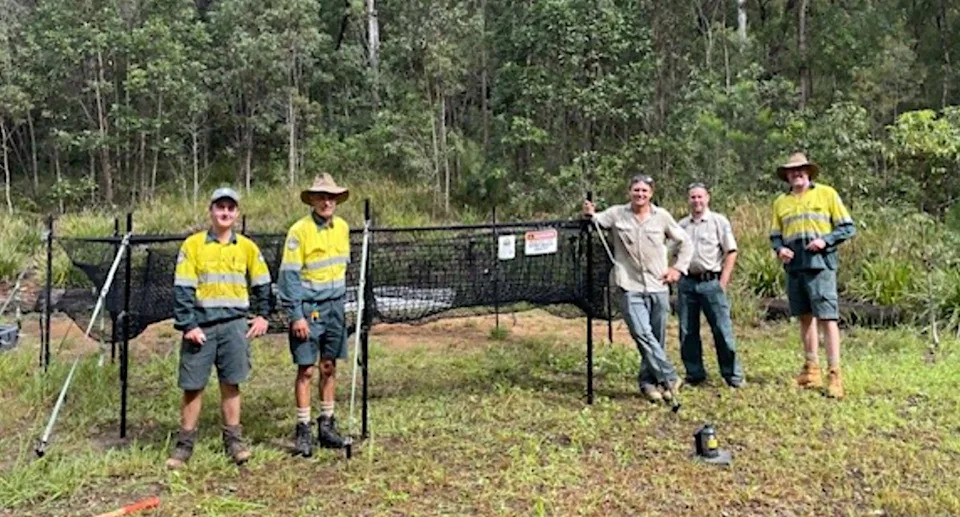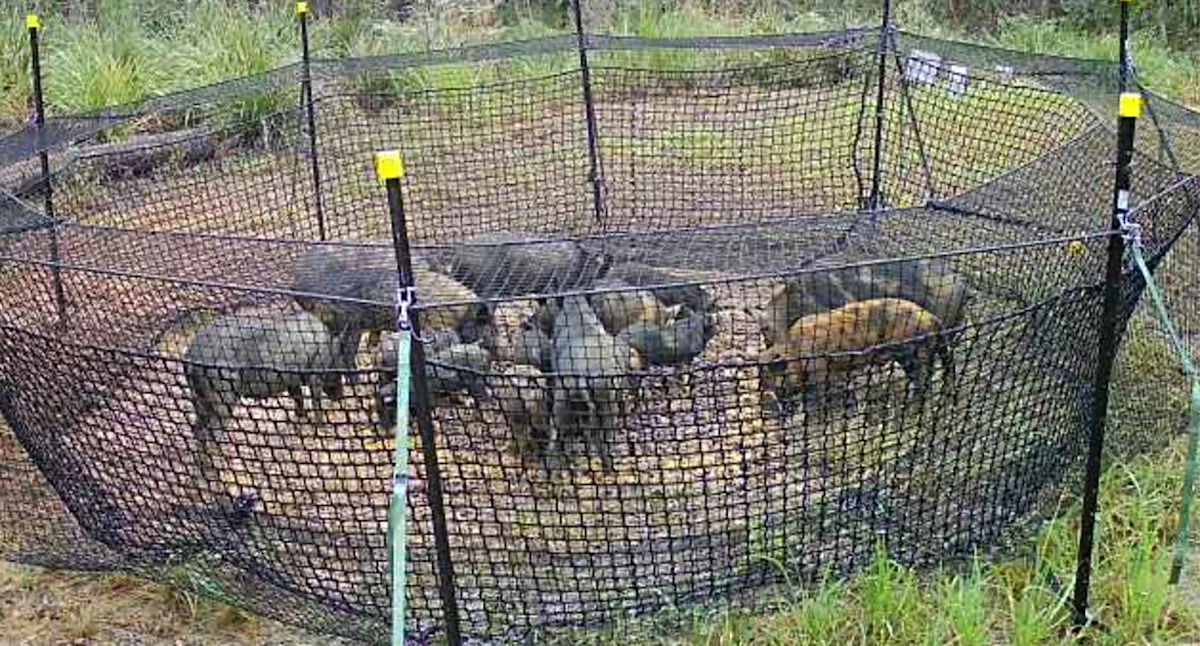Feral pigs are one of the country’s worst introduced species, and authorities are getting creative in their attempts to mitigate the $100 million economic impact they have on Australia’s agricultural sector every year.
Recently, rangers turned to macadamia nuts to “condition” a herd of feral pigs in a popular Queensland national park. Described as a “significant pest management win”, rangers at Glass House Mountains National Park, north of Brisbane, used locally sourced nuts to train the animals in a feeding routine, making the pigs’ movements predictable.
After a week of luring the feral animals to a location with the food source, rangers set a circular netting trap, with the pigs finding themselves stuck and completely contained after their free meal.
“To help attract feral pigs into the Brig trap, macadamia nuts are fermented in water for up to 24 hours to ensure they have a stronger smell,” a spokesperson for the state’s Department of Environment, Tourism, Science and Innovation (DETSI) told Yahoo News. “They are then placed on the ground inside the trap, which has its sides raised.
“Rangers monitor the trap with a remote camera, and when they are satisfied that enough pigs are accessing the food, the sides of the traps are lowered in stages.
“When the sides of the trap are fully lowered, the feral pigs can still push through the netting to access the food, but they cannot get out,” the spokesperson said.
Yahoo News understands the pigs are then humanely euthanised.

The rangers conditioned the pigs for a week before setting the trap. Source: Facebook/Queensland National Parks
Queensland has been heavily impacted by feral pigs, with the state government allocating $30 million over four years to enhance feral animal control programs.
At Bribie Island National Park, just north of Brisbane, tourists report having increasingly more run-ins with the animals, and some say the pests have even stolen food from unwitting campers. DETSI had to issue a warning as tensions have been so high that two alleged pig shooters were slapped with a $9,000 fine for targeting the animals.
However, the pigs’ wallowing behaviour — which involves rolling in mud to fight off insects — and rooting behaviour while digging for food have had a detrimental impact on the landscape, and they are easily outcompeting native species for food sources.
Feral pigs likened to ‘mini-bulldozers’ in Australian landscape
Former CEO of the Invasive Species Council of Australia, Andrew Cox, previously told Yahoo News that feral pigs were like “mini-bulldozers” and wreak havoc on the environment.
“They upturn the ground for roots, insects and grubs, so they’re a serious problem for many plants and animals,” he said. “Like feral horses, they’re ecosystem transformers. They’re highly destructive.”
Australia is estimated to have up to 24 million feral pigs spread across the country, from western Victoria through NSW and up into Queensland, across northern Australia. There are also feral pigs found to be living on a few offshore islands.
Do you have a story tip? Email: newsroomau@yahoonews.com.
You can also follow us on Facebook, Instagram, TikTok, Twitter and YouTube.


